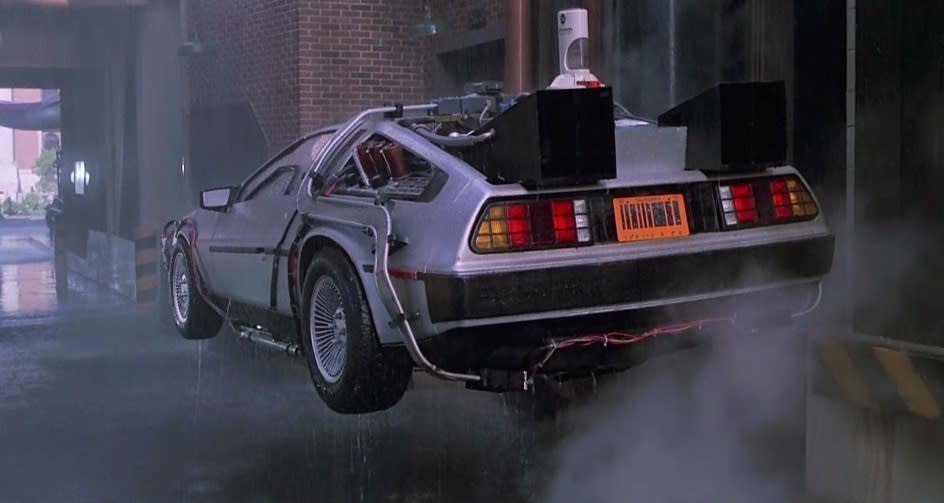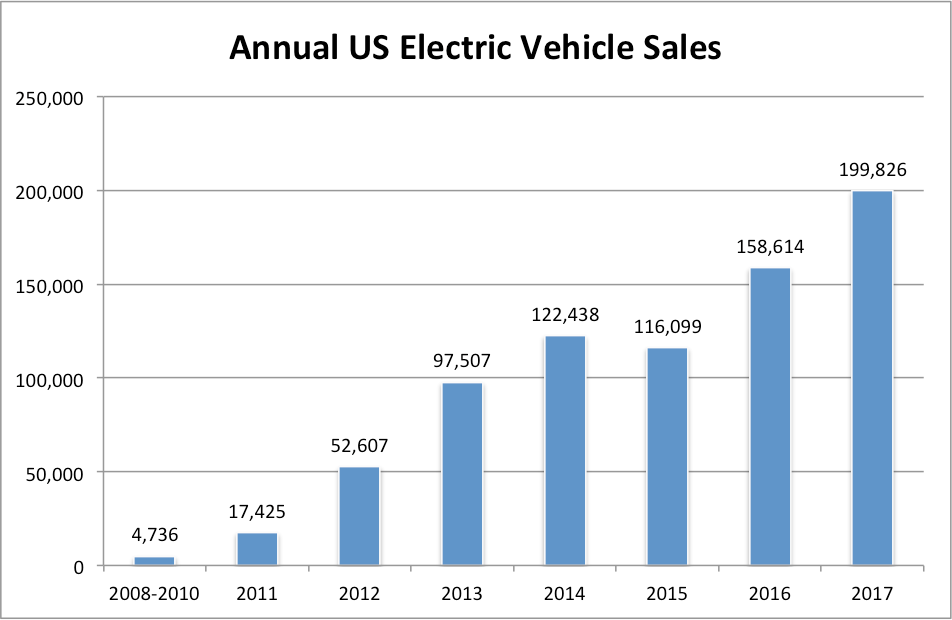Tariffs. Taxes. Regulations. National policy gets the spotlight—and understandably so. What happens...
Transportation Policy: Road Funding Is in Crisis

We really have two options.
-
Get to work fast on making Doc Brown’s flying DeLorean a real thing.
-
Get to work on fixing our road funding formulas.
While you would think the second would be easier, the slow pace of policy makers in creating a road funding structure for the future, makes me think we may see flying cars first.
The Problem: Here’s the situation: at a federal and state level, most funding for road construction and repair comes from the gas tax. The gas tax has served us well for decades as the best proxy for a vehicle miles traveled tax. The more you drove, the more you contributed to road construction and upkeep. But the day of the internal combustion engine is ending.

Consumers are rapidly converting to electric vehicles (EVs) and the government, through sticks and carrots, is strongly incentivizing car makers to convert production to EVs. Governments are stating that in the near future they will only buy EVs. Last year's Inflation Reduction Act created massive incentives for the construction of new EV production lines and battery manufacturing facilities. Both policies will shift the auto market rapidly away from gas powered vehicles.
With each new EV, a pothole goes unrepaired as the vehicle’s owner pays no gas tax.
The Solution
So what is the solution? Bold action. We can’t simply tinker with a soon-to-be obsolete system. I see two viable paths forward:
-
Implement a true Vehicle Miles Traveled tax. The more you drive, the more you pay, just like with the gas tax. This could be done with an annual odometer reading or a GPS tracker. The GPS tracker allows for more precise taxation at the state level by only charging the user for in-state travel. However, any time it is mentioned, critics will pull out their location enabled smart phone and tweet naively about how they don’t want to be tracked. The annual odometer reading avoids privacy concerns, but also results in a large annual bill that includes miles driven outside the state. My suggestion: give drivers a choice. Pay annually based on your odometer reading unless you opt into a GPS system that allows you to avoid paying for out of state travel.
-
Charge everyone an access fee. A shift from paying based on use to paying for access is not unprecedented for American consumers. I’m old enough to remember when cell phone service and messaging was billed by the minute and by the text. Today, most users have an “unlimited” plan for which they pay a flat fee. It doesn’t matter how many calls you make or Tik Tok dances you watch, you pay the same. You pay for the network to be there when you need it, regardless of how much you use it. We could implement the same model for roads.
Regardless of how the problem will be solved, it needs to be solved now. EVs are taking over our roads, and unless Doc Brown makes a major discovery, where we’re going, we still need roads.

